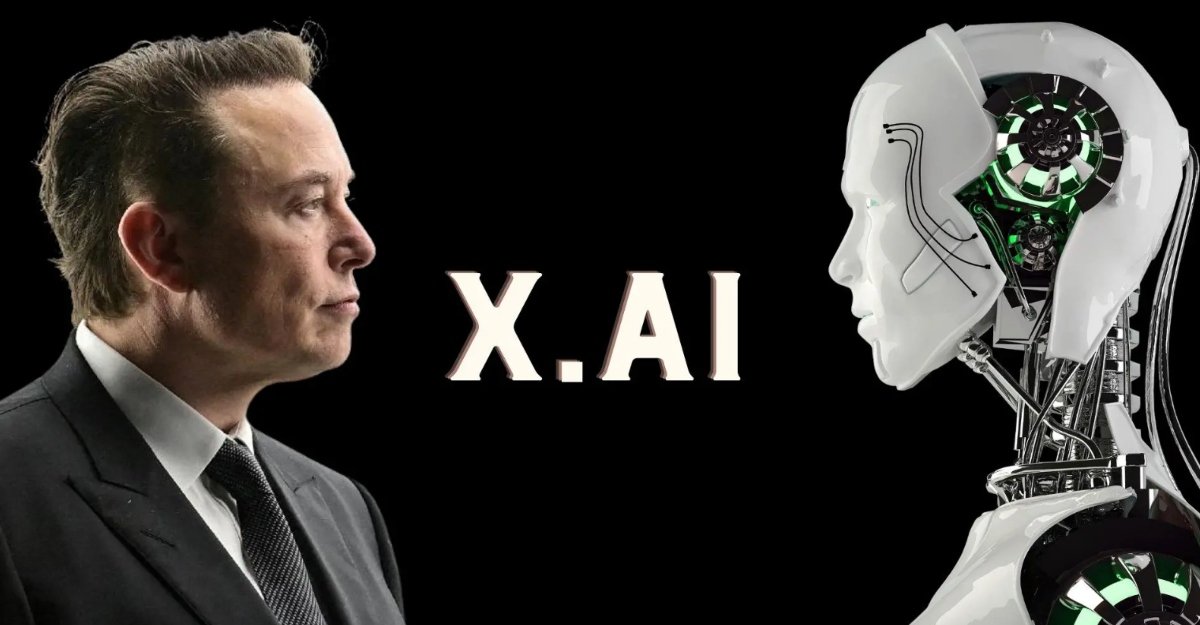Revolutionizing AI with a Game-Changing Innovation
Elon Musk’s AI startup called xAI has just launched an original, cutting-edge tool that might soon change the way things are done in the realm of artificial intelligence (or at least we greatly hope so). Musk, no stranger to moonshot projects himself with Tesla and SpaceX is a type of audacity. This new AI tool is an extension of Musk’s xAI aiming to explore how it can bring a revolution in the industries. But how does this new tool fare when stacked up against others out there? What will that mean for AI down the line? In this review, we run you through what the tool is, how it stacks up against existing AI systems, and its possible implications on individual industries.
An Overview of xAI’s Vision
Musk founded xAI to guarantee that the benefits of artificial intelligence extend to humanity overall, especially in matters concerning safety and responsibility. While other AI companies generally focus on products and innovations for expensive profit lines, xAI is focused on the safety of the development process to ethics. Musk has also been very outspoken in his fears of unfettered AI and argues for a form that augments or complements human intelligence rather than supplanting it. xAI is on the path to achieving just that with this new AI tool, and it has developed an algorithm that can be cutting-edge in technology but also mindful of its ethical implications.
Features of the New AI Tool
The new top-of-the-line AI tool xAI launches as a complete NLP, ML / Machine learning, and Advanced decision platform. Stand-out features include:
- Highly Advanced NLP Capabilities: One of the biggest features of the xAI proprietary tool is its interpretability. That puts it on a collision course with pre-existing models like OpenAI’s upcoming GPT-4 or Google’s Bard On the other hand, xAI argues that their model is much better at grasping context and conversing in detail. Well, to be specific it can process complex queries much more accurately.
- Ethical Framework Integration: This is in stark contrast to many AI systems, which are oriented primarily toward efficiency; xAI initially conceived their tool with an ethical decision-making system built-in. This gives it the ability to consider the consequences of its actions and results which allows use in a moral framework. This may be crucial for areas such as healthcare or law, and the small details can mean life or death in autonomous driving.
- Self-Improving Algorithms: The AI tool also features a one-of-kind self-learning capability, allowing it to perfect its performance without the need for direct human interference. Through the utilization of real-time data, it learns and refines its algorithms making chips smarter every time they are deployed.
- User-Friendly Interface: Its interface is successful as it translates complicated interactions into something simple, which can make the system easier to navigate for non-technical users. This tool is designed for a number of use cases that range from software engineers to business owners and even an individual user, hence could be used in various industries making it domain-independent.
- Collaborative Human-AI Model: While AI tools are designed to be fully automated, the xAI model was created with intended human-machine co-working. The AI is merely a tool to help, making human intelligence better rather than replacing it. This fits with Musk’s greater vision of AI working alongside humans rather than replacing them.
Applications Across Industries
This AI tool could have immense applications across various industries Common sectors that this technology could apply to carry with them significant backlogs of regulatory test conditions and aren’t able to keep the pace needed for these vast industries or markets:
- Healthcare: This AI has the potential to be a game changer in terms of diagnostic tools, and treatment advice, and may even power robots for surgery since it can process large amounts of data within a fraction of a second and is capable of ethical decision making. In addition, its mature NLP chops could be used to unpack medical records and provide precise insights in a contextually relevant manner.
- Finance: With xAI, finance professionals can use the tool to analyze large data sets and make decisions about investments, risk profiles, or fraud without uncovering sensitive personally identifiable information. When you think about it, what other contextually aware data source exists that is capable of self-learning its position in the dark ocean and making an educated trade decision?
- Autonomous Vehicles: Musk has been an outspoken advocate of autonomy through his work with Tesla, and xAI’s new tool could provide a competitive edge in boosting the safety and decision-making systems within self-driving cars. Those sorts of ethical calculations can be included in an AI self-driving system so that the car is steered towards a choice which makes it less likely to get into any accident when driving in these more complex environments.
- Customer Service: The advanced NLP in the application makes it perfect for customer service and answering intents as clear responses are important. Being able to process more complex queries can also help in smarter customer interactions and make the support systems better, thus leading to an efficient service network.
The Competitive Landscape
The market of AI is too aggressive with giants such as OpenAI, Google, and Meta making great changes. AI acknowledges that they are not the first company in this space, but by emphasizing ethics, cooperation, and security its integration of those principles distinguishes it from competitors. GPT-4 from OpenAI, for instance, is highly regarded as being flexible with text generation while Google’s AI systems focus on data analytics and automation. However, the focus of xAI was on human-AI collaboration, and ethical decision-making which gives it an edge, especially for organizations that are now prioritizing AI usage to be responsible.
In addition to this, its machine learning algorithms and a wider range of uses also come close to performance against dedicated systems. Unlike the purpose-built model of many AI tools (like those for natural language generation and machine learning), xAI applies to a wide range of industry needs.
Potential Challenges
Each of these limitations renders the new xAI tool promising but also faces challenges. For a start, the efficacy of its ethical decision-making framework will depend upon ongoing vigilance and updates. Even the brightest AI systems are not perfect, especially in the face of unpredictable scenarios. Public Trust as a Barrier Musk himself has been a polarising figure in the tech industry and come out openly against AI, so some industries may be hesitant to adopt such technology unless there are clear demonstrations of its safety and efficacy.
Also, the expense of incorporating such a high-tech AI system would prove too much to bear for small businesses and therefore be adopted first by larger corporations. let’s look at both the highs and lows advertisements sector as well Last but not least xAI will need to be an innovator at the leading edge of a market that moves quickly and continually evolves.
Final Thoughts
One more step for Elon Musk is the path-breaking launch of a new AI tool in its xAI. The tool, combining high-end technology and a robust ethical backbone gives the power for implementation across many different sectors. xAI has an edge over the competition by concentrating on human-AI collaboration, ethical decision-making, and self-learning algorithms. But its future will boil down to conquering cost, trust, and Kaizen.
In conclusion, xAI’s new AI tool has the potential of being a crossroad reflection with great benefits for both parties; businesses and personal reasons. Musk’s latest project isn’t one to just shake up the A.I. market it appears primed to create a new paradigm of responsible and smart solutions for humanity.



